UK Academics want reform of ‘narrow’ phonics focus
Study claims teaching reading in England has been ‘less successful’ under new approach
 SchoolsWeek/UK
SchoolsWeek/UK
Freddie Whittaker 19 Jan 2022, 0:01 More from this author

A report from UCL (University College London) found synthetic phonics – the practice of breaking words up into units of sound – has become the “dominant approach” in England after reforms introduced in 2012 by education secretary Michael Gove.
Schools previously favoured a “more balanced approach”, the report said, including the use of passages of words.
However the UCL study claimed that teaching reading in England “has been less successful” under the new approach. The conclusion was based on an analysis of 55 “robust” longitudinal experimental trials.
Researchers said their findings “do not support a synthetic phonics orientation to the teaching of reading: they suggest that a balanced instruction approach is most likely to be successful”.
But Dept. of Education says phonics benefit ‘proven the world over’
But the Department for Education shot down the study, saying phonics teaching had been “proven the world-over to be the most effective method of teaching children to read”.
The Education Endowment Foundation rates phonics as having a “high” impact of five months of progress for “very low cost”, based on “very extensive evidence”.
The 2016 Progress in International Reading Literacy Study (PIRLS) saw England rise from joint tenth to joint eighth place out of 50 countries for reading among ten-year-olds, its highest-ever ranking.
The government claimed at the time this showed its phonics reforms were working. In 2019, the former schools minister Nick Gibb said the debate over phonics was “over”.
But UCL academics said the trend in England’s PISA score – which had smaller gains that PIRLS – was a “more valid source” for the purpose of their research.
Professor Dominic Wyse, a co-author of the UCL paper, said England’s approach “requires a too heavy emphasis on teaching about phonemes (sounds), and so minimises attention to other vital aspects of teaching reading”.
The analysis of other studies found that phonics teaching was “likely to be effective” if it was “carefully connected” with reading actual books and taught for between 36 and 60 hours in a single school year.
The DfE said its guidance was “clear that phonics is just one part of becoming a fluent reader”.
“As well as systematic phonics teaching, teachers should also focus on speaking and reading stories to foster a love of reading among children.”
Open letter calls for change to reading policy
More than 250 people have now called on the government to change its policy on reading, saying in an open letter that reforms should “centre on a wider range of approaches to teaching phonics and reading, enabling teachers to use their own judgement about which is best for their pupils”.
Of 634 nursery, reception and year 1 teachers surveyed as part of the research, 66 per cent said phonics was their main focus. This compared to just 1 per cent who said whole texts were seen as the “main emphasis and context” for teaching reading.
The use of synthetic phonics in schools is enforced by the government through the national curriculum, Ofsted inspections and the phonics screening check, which was introduced in 2012.
A survey of year 2 teachers found 43 per cent said the introduction of the screening check had an impact on their teaching to some extent, including reducing time spent on other literacy activities.
No return to the ‘bad old days’
Tom Bennett, the founder of ResearchEd, said it was “odd” to claim teachers only use phonics.
Evidence shows phonics “remains the single best way to introduce young people to reading”, he added, but warned there is “still a strong anti-evidence instinct in many educationalists, and some teachers who have been misinformed and let down by phonics denialists in their teacher training”.
The report “seems to encourage…a return to the bad old days of multi-cueing and other forms of guesswork”, said Bennett.
“Such approaches risk leaving children illiterate. Let’s not do that. Evidence matters, not dogma.”
Julie McCulloch, head of policy at the ASCL school leaders’ union, added while there was “clear evidence” phonics provided a “strong foundation” to help children learn to read, it was “important that this is combined with approaches which help children to appreciate stories and develop a love of reading”.
According to DfE data, the proportion of year 1 pupils meeting the expected standard in the phonics screening check rose from 58 per cent in 2012 to 82 per cent in 2019.
The research was funded by the Helen Hamlyn Centre for Pedagogy, which is based at UCL.
Continue the conversation, share this article on social media
**************************************************************************
If you desire to teach your own Children to read, Alpha-Phonic is one of the best phonics reading instruction programs you can use. It has been used successfully by tens of thousands of Families for over 38 years. It has proven easy to teach (Parent needs NO special training), is highly successful, anybody can easily teach it to their students and it is very reasonably priced at only $ 18.95 or less.
WEBSITE TESTIMONIALS CATHY DUFFY REVIEW
OTHER REVIEWS AWARDS HOW TO ORDER


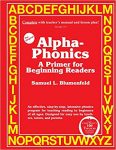
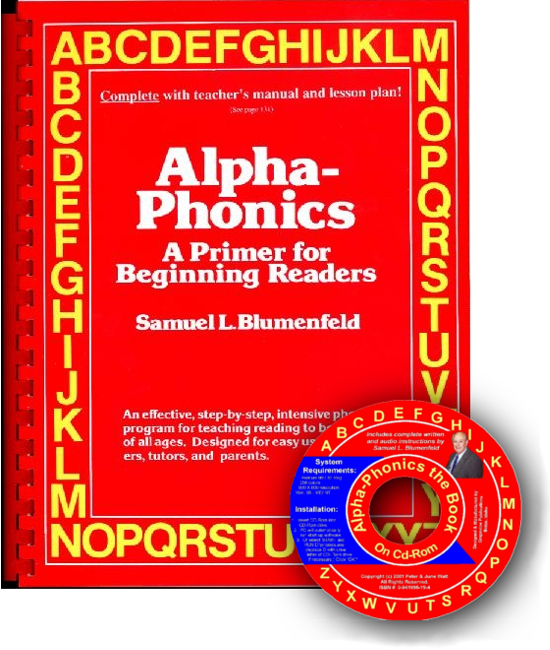 Alpha-Phonics
Alpha-Phonics The Alphabet Song!
The Alphabet Song! Water on the Floor
Water on the Floor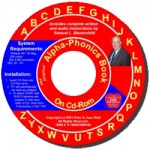 Alpha-Phonics the Book on CD Rom
Alpha-Phonics the Book on CD Rom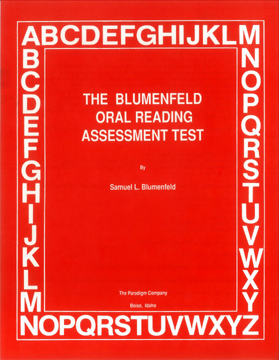 Blumenfeld Oral Reading Assessment Test
Blumenfeld Oral Reading Assessment Test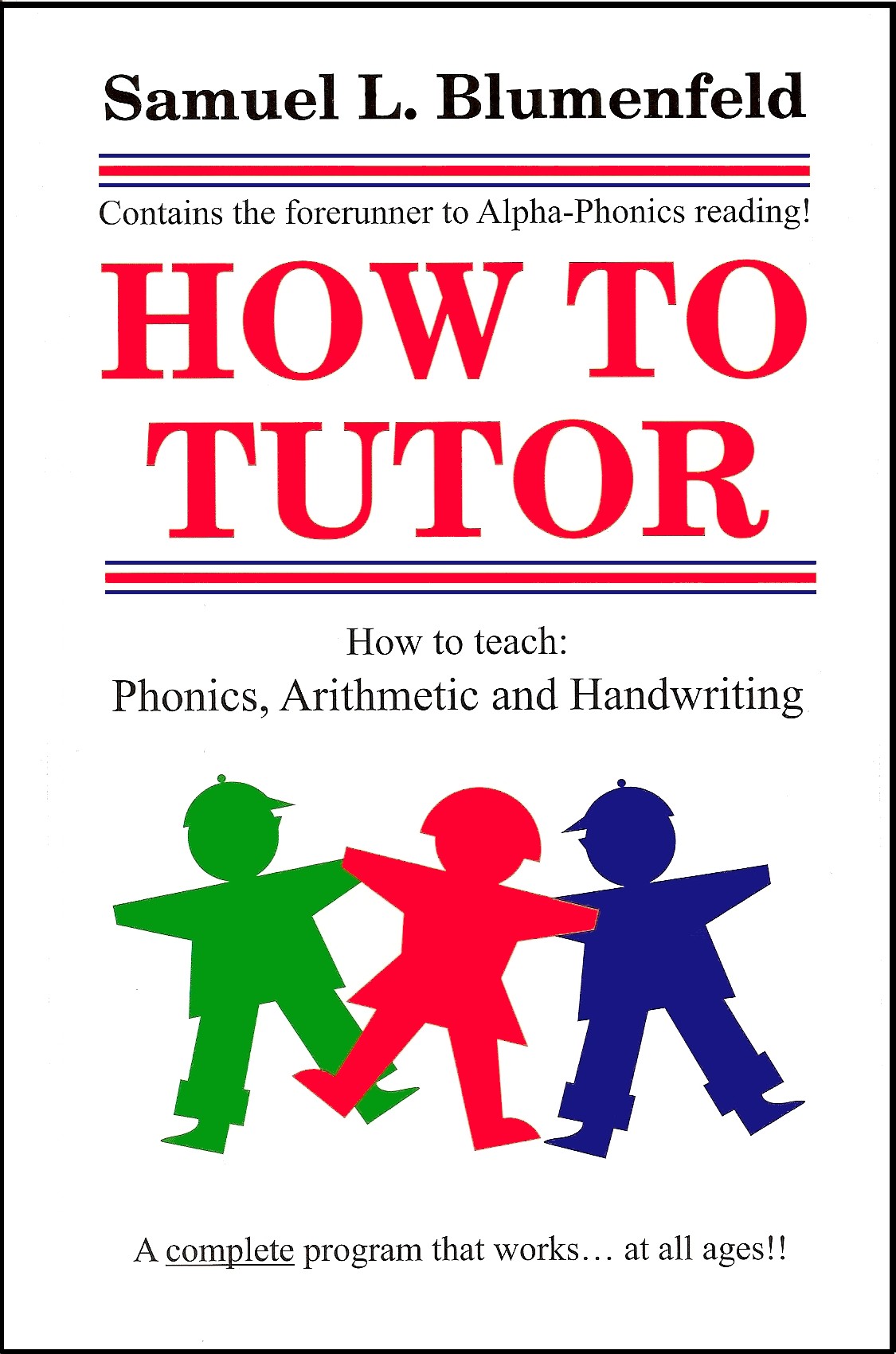 How To Tutor
How To Tutor How To Tutor Cursive Handwriting Workbook
How To Tutor Cursive Handwriting Workbook